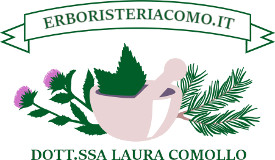Very often we hear the term “nutraceutica” but few actually know what it refers to. The same goes for “nutraceuticals“.
Nutraceutica: the meaning
The term “nutraceutica” is a syncratic neologism from “nutrition” and “pharmaceutical” coined by Dr. Stephen De Felice in 1989. Nutraceutica is the science that studies the compositions of foods (or better: the extracts of plants, animals, minerals and microorganisms used as isolated nutrients, supplements or specific diets) and the functions that potentially influence cellular and therefore metabolic processes. Nutraceuticals, for example, evaluate the ability of a vitamin or some minerals to influence cellular activity in some way by intervening decisively and decisively in biochemical reactions (coenzymes).
Nutraceuticals: what they are
The nutrient is not only food, but the first actor in disease prevention. Nutraceuticals are those nutrients contained in foods that have beneficial effects on health, in particular for the prevention and treatment of chronic diseases. These effects must be rigorously demonstrated with appropriate experimental and clinical studies.
Nutraceuticals can be extracted, synthesized and used for food supplements, or added to food (it is rarer to find them in food naturally and in sufficient quantities to obtain benefits).The minimum quantities of nutrients to obtain benefits are governed by European regulations (eg Reg. 432/2012) in which the claims (explanatory phrases of the benefit procured) that can be used are listed. Nutraceutical foods are also commonly referred to as functional foods. Nutraceuticals can be taken both in the form of “naturally nutraceutical food” and “enriched food” with a specific active ingredient (eg milk with added vitamin D or omega 3 acids). They can also be taken in the form of food supplements.
Nutraceutical products selected for you by Erboristeriacomo.it are:
- probiotics (erboflora rigenera, erboflora intolerance),
- antioxidants (fermented papaya, turmeric gold),
- polyunsaturated fatty acids (omega 3, omega 6),
- vitamins, minerals and enzyme complexes.
Typically, nutraceuticals are used to prevent chronic diseases, improve health, delay the aging process and increase life expectancy. Even post-genomic research has revealed that nutritional intervention has a strong impact on the expression of proteins produced by genes, important for different biological functions.
Nutraceuticals: role against degenerative diseases and cancer
Aging is a complex phenomenon in which genetic factors interact with environmental factors to provoke a degenerative process characterized by biological modifications that intervene at the cellular and systemic molecular level.
The aging process involves a series of multiple factors such as: oxidative stress with consequent damage to proteins and DNA; chronic, silent inflammation, caused by an increased production of pro-inflammatory cytokines; increase in plasma levels of free fatty acids with consequent condition of resistance of tissues such as muscle and insulin fat; accumulation of cellular waste products (metabolism toxins) such as amyloid (which is formed in people with Alzheimer’s); activation of the angiotensin system and / or alterations of the neuroendocrine system (for example, the controls that regulate the pressure); loss of post mitotic cells (cell divisions) with consequent reduction in the number of neurons and / or muscle cells.
- Nutraceuticals to prevent Alzheimer’s and other degenerative diseases: The close correlation in the elderly between inflammation and degenerative diseases such as Alzheimer’s, cancer, diabetes, cardiovascular diseases is known. Antioxidants, nutritional and mineral supplements, with preventive therapeutic potential, would reduce the level of silent inflammation. Caloric restriction remains one of the most powerful modifications of the aging process, with strong health benefits and many degenerative changes associated with age.
- Nutraceuticals against cancer: Nutrition plays a fundamental role in maintaining the effectiveness of the antioxidant enzyme defenses. Among the antioxidants of vegetable origin, contained in vegetables and fruit, there are: ascorbic acid, tocopherols, carotenoids, flavonoids. Flavonoids are also part of the “gene modulators”, ie molecules active on DNA that induce the production of enzymes with a high impact on the glycidic, lipidic and protidic metabolism. Their deficiency affects hormonal and metabolic dynamism by promoting weight gain. Among the most relevant actions of antioxidant molecules there is that of activating the Nrf2 factor, capable of antioxidant defense and cellular regeneration. The ORAC index (Oxygen Rapid Absorbance Capacity), also indicated on our fermented papaya, expresses the antioxidant action of fruit and vegetables. Broccoli, tomatoes, berries, garlic and onion, green tea, turmeric, papaya, just to name a few, contain antioxidants with the ability to positively influence the activity of enzymes produced by genes, in order to activate the metabolic pathways specific to remove any carcinogens from our body. Antioxidants, phytocompounds, anthocyanosides and others possess the ability to neutralize mutant and carcinogenic cells or the development of new blood vessels (angiogenesis).
A good nutrition can extend life
Some tips: start now to avoid marinated, preserved, smoked, fried, modified foods as much as possible; moderates the intake of red meat and alcohol; decrease your calorie intake, don’t smoke, increase your vegetable and fruit intake; respects the seasonality of the food to be consumed. Thanks to a conscious diet we could reduce the average incidence of tumors by about a third!
For any clarification or for more information Contact us.
Follow us on our Facebook and Instagram channels
ALL RIGHT ARE RESERVED, THIS TEXT IS NOT REPRODUCIBLE WITHOUT EXPRESS AUTHORIZATION OF ERBORISTERIA COMO.

